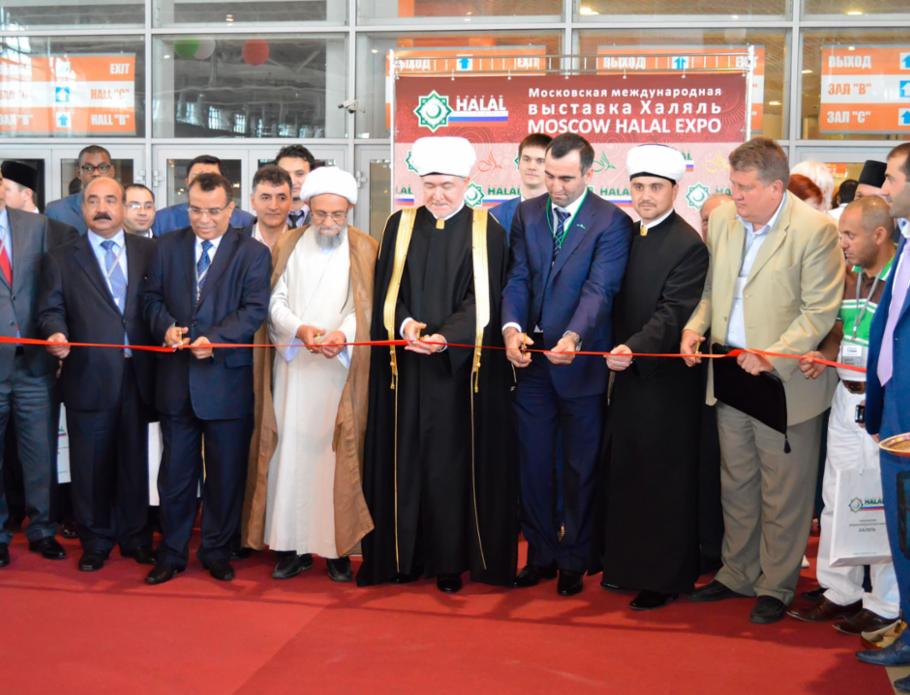Abdullah Al Maeeni, general director of ESMA visited Moscow Halal Expo 2016
By egor Wednesday, 08 June 2016 9:56 AM

Abdullah Al Maeeni, general director of ESMA (Emirates Authority For Standardization and Metrology) that regulates import to the UAE, is a guest of honor at the Moscow Halal Expo 2016 Exhibition. The Russian halal market has seen much interest from foreign countries, especially the UAE, which indicates the general growth of the sector and the increasing role of Dubai, the Gulf’s hub.
The Russian Federation has been languishing in an economic slump—its GDP growth fell from 3.4 percent to 1.3 percent to 0.6 percent to -3.7 percent from 2012 to 2015—and local companies are looking to the global halal market for growth.
The halal market in Russia is highly fragmented. There is no definitive number of Russia-based halal-certified companies but according to leading halal certification centers the Russian Muftis Council and Halal Committee of Republic of Tatarstan, there are around 300 across food, hotels, restaurants and catering companies, cosmetics and personal care, and tourism.
The fastest-growing segment of Russia’s halal market is the production of meat and poultry, whose exports in the last couple of years have been driven by the falling value of the Russian ruble against the US dollar.
Last year, Russia’s largest meat producer Miratorg invested more than 30 billion rubles ($455 million) to build a vertically-integrated production facility in Bryansk capable of processing 400,000 heads of cattle per year.
The company is now certified to supply halal beef to the UAE, a move that CEO Victor Linnik explained in July last year as ”the most important area in the development of high-quality beef exports of the company” due to the potential to also reach other Muslim markets.




























Add new comment